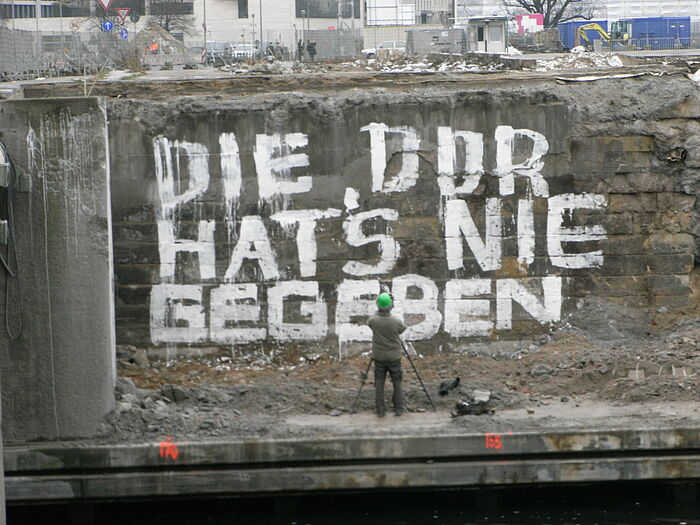- The Institute
- Research
- Dictatorships in the 20th Century
- Democracies and their Historical Self-Perceptions
- Transformations in Most Recent History
- International and Transnational Relations
- Edited Source Collections
- Dissertation Projects
- Completed Projects
- Dokumentation Obersalzberg
- Center for Holocaust Studies
- Berlin Center for Cold War Studies
- Publications
- Vierteljahrshefte
- The Archives
- Library
- Center for Holocaust Studies
- News
- Dates
- Press
- Recent Publications
- News from the Institute
- Topics
- Munich 1972
- Confronting Decline
- Feminist, Pacifist, Provocateur
- Der Mauerbau als Audiowalk
- Digital Contemporary History
- Transportation in Germany
- Envisaged Futures at the End of the Cold War
- From the Reichsbank to the Bundesbank
- German Federal Chancellery
- History of Sustainabilities: Discourses and Practices since the 1970s
- Changing Work
- Democratic Culture and the Nazi Past
- The History of the Treuhandanstalt
- Foreign Policy Documentation (AAPD)
- Dokumentation Obersalzberg
- Hitler, Mein Kampf. A Critical Edition
- "Man hört, man spricht"
- Dates
- Press
- Recent Publications
- News from the Institute
- Topics
- Munich 1972
- Confronting Decline
- Feminist, Pacifist, Provocateur
- Der Mauerbau als Audiowalk
- Digital Contemporary History
- Transportation in Germany
- Envisaged Futures at the End of the Cold War
- From the Reichsbank to the Bundesbank
- German Federal Chancellery
- History of Sustainabilities: Discourses and Practices since the 1970s
- Changing Work
- Democratic Culture and the Nazi Past
- The History of the Treuhandanstalt
- Foreign Policy Documentation (AAPD)
- Dokumentation Obersalzberg
- Hitler, Mein Kampf. A Critical Edition
- "Man hört, man spricht"
Envisaged Futures at the End of the Cold War
A Research Project conducted by the Berlin Center for Cold War Studies
Between 1989 and 1991, the Cold War dissolved and the polarized world order that had characterized the second half of the twentieth century melted away. At the same time, an unprecedented socioeconomic transformation was taking place across the societies of Eastern Central Europe. Up to now, historiographical scholarship on the end of the Cold War has tended to concentrate on the factors that brought about the transformation, and to examine the developments in international politics from an ex post perspective.
The project “Envisaged Futures at the end of the Cold War”, by contrast, sets its focus on the interaction between spaces of experience and horizons of expectation at a time of accelerated and indeed dramatic change. The project investigates individual and collective designs for the future, their discursive and emotional adoption, and connected practices related to the configuration, planning, and preservation of the future at a dynamic time of upheaval, in which much seemed possible and to be hoped for. The project does not only illuminate visions of the future sui generis as they appeared in politics, centres of expertise, civil society, and the media, but also looks into the functions of the envisaged futures, the spheres of action and outcomes arising out of this. The period of investigation stretches from 1987/88, when General Secretary of the Soviet Communist Party Mikhail Gorbachev spoke of a “common European home” and proclaimed a “new world order” before the UN General Assembly, through to the socioeconomic transformations in Germany and the Development Programme the UN proclaimed in 1994.
The goal of the project is not just to illuminate future scenarios, hopes, and fears with their respective functionalization during this time of upheaval. It also seeks to make a contribution toward understanding current political polarizations – whether in international relations, in the German-Russian relationship, or in the political cultures of West and East Germany, with a view to their former futures and the impact that they had.
The project, which is centered at the Berlin Center for Cold War Studies, is led by Elke Seefried and Agnes Bresselau von Bressensdorf. It Includes three subprojects, which focus on actors from the United States, Germany, and the Soviet Union/Russia.
In his postdoc project, Peter Ridder investigates concepts of a “New World Order” in the United States and the Federal Republic of Germany, 1988-1994. Helena Gand focuses on futures and national identities in the East-West German transformation process, 1989-1993. Her PhD project is supported by the Federal Foundation for the Reappraisal of the SED Dictatorship (Bundesstiftung zur Aufarbeitung der SED-Diktatur). Susanne Maslanka is working on High expectations and broken trust? Cultural relations between Germany and the Soviet Union/Russia during the transformation process, within the framework of the cooperative project “Drifting Apart: International Institutions in Crisis and the Management of Dissociation Processes”, organized by the Peace Research Institute Frankfurt (Leibniz-Institut Hessische Friedens- und Konfliktforschung) and financed by the Leibniz Association.




